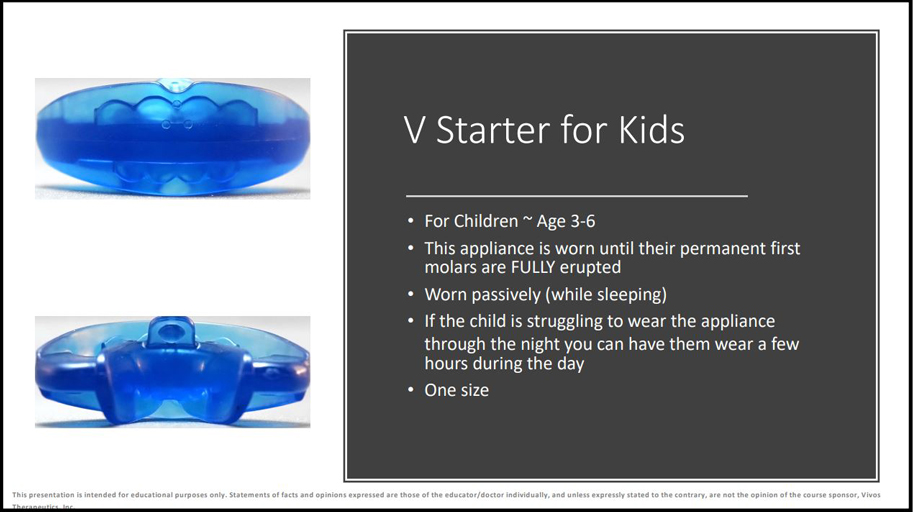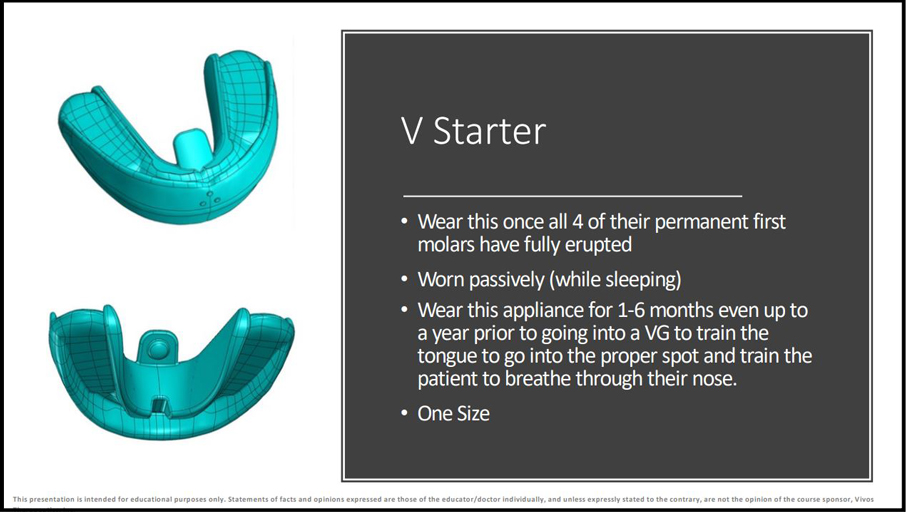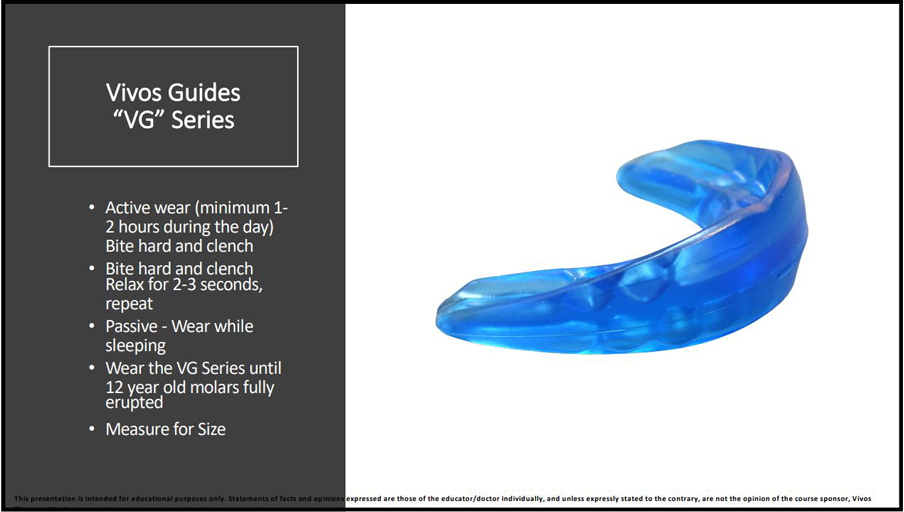Restful, refreshing sleep
Sleep Disordered Breathing - Vivos Appliance Therapy in Highland, IN
Sleep disordered breathing is any condition affecting a child's breathing patterns during sleep. One of the most common and troublesome types of disordered breathing is sleep apnea, which is characterized by a child stopping breathing repeatedly throughout the night. At Dentistry for Children, we offer Vivos appliance therapy to improve your child's health and quality of life. Visit our Highland office to get your child’s sleep quality back on track.

Sleep Apnea - An Overview
Sleep apnea in children is a serious sleep disorder that occurs when a child's breathing is interrupted repeatedly during sleep due to a blocked airway. A child with sleep apnea may stop breathing for seconds or minutes at a time and, in severe cases, up to thirty or more times an hour. The brain responds by waking your child up to breathe. However, continuous breathing interruptions may lower the oxygen in the blood to unhealthy levels, with long-term health impacts.
Sleep apnea may cause your child to wake up repeatedly through the night, gasping for air. Sleep disordered breathing can lead to disrupted sleep, daytime fatigue, and behavior problems. It can result in significant challenges and can impact your child's health and quality of life.
What Are the Types of Sleep Apnea?
There are two leading types of sleep apnea in children: Obstructive sleep apnea and Central Sleep Apnea.
Obstructive Sleep Apnea (OSA): Obstructive sleep apnea is the most common form of sleep apnea in children. It results from the muscles and tissues at the back of your child's throat blocking the airway during sleep, leading to pauses in breathing. Most children with mild to moderate obstructive sleep apnea wake up choking or repeatedly gasping through the night but fall back asleep right away. Most have no recollection of waking up.
Central Sleep Apnea (CSA): Central sleep apnea is much less common than obstructive sleep apnea. It usually occurs when the brain fails to send signals to the muscles responsible for breathing. In some cases, the brain sends the signals, but the respiratory muscles do not respond. In either case, your child may stop breathing multiple times through the night, negatively impacting the quality of sleep.
What Are the Symptoms of Sleep Apnea in Children?
The following are some symptoms of sleep apnea in children:
- Pauses in breathing during sleep
- Heavy breathing while sleeping
- Snorting, gasping, coughing, or loud snoring during sleep
- Mouth breathing
- Restless sleep
- Waking up with a dry mouth
- Nighttime sweating
- Bedwetting
- Sleep terrors
- Sleepwalking
- Talking during sleep
- Daytime sleepiness
- Behavioral or learning difficulties
These symptoms do not necessarily mean a diagnosis of sleep apnea. However, If you see any of the above warning signs, we highly recommend having your child evaluated by a medical professional to rule out pediatric sleep disordered breathing.
What Are Childhood Sleep Apnea Risk Factors?
While sleep apnea occurs more significantly in older adults, it can develop in children. Unfortunately, the majority of children with sleep apnea are mistakenly believed to have behavioral disorders or learning disabilities when in reality, the root of the problem lies in their inability to get restful, rejuvenating sleep.
Factors that elevate the risk of sleep apnea include childhood obesity, a small upper or lower jaw, a severe overbite, abnormalities in the skull or face, or the improper growth or alignment of the lower jaw, which causes the tongue to block the airway. It can also result from having enlarged tonsils or adenoids, nasal allergies, neuromuscular disease, low birth weight, muscle weakness, exposure to secondhand smoke, and a family history of sleep apnea.
How Does Untreated Sleep Apnea Impact Your Child?
Sleep matters. Getting a good night's sleep is vital for your child's overall health, well-being, and quality of life. It directly supports better attention, enhances school performance, helps regulate emotions, and improves impulse control. Restful sleep also promotes a healthier immune system and helps children fight off illnesses and infections.
Long-term sleep disorders can impact growth and development and leave a child at an increased risk for mental and physical concerns. Children may experience morning headaches, unexplained weight loss, stunted growth, developmental delays, irritability, depression, anxiety, mood swings, and chronic or repeated illnesses.
Unfortunately, many children with sleep disorders are misdiagnosed with learning disabilities, behavioral disorders, or ADHD. That's because, unlike adults who often become irritable or lethargic due to lack of sleep, chronic sleeplessness in children may lead to bursts of energy, hyperactivity, and other behavioral issues.
Diagnosing Sleep Apnea in Children
Sleep-disordered breathing can affect even toddlers. Take your child in for an evaluation at the first sign of breathing difficulties or if you see any symptoms of sleep apnea. Your pediatrician may recommend a sleep study to diagnose the condition. Your child will have sensors placed on different parts of the body to record breathing patterns, snoring, brain wave activity, oxygen levels, heart rate, and muscle activity. Your child's sleep study may take place in a hospital setting.
Traditional Sleep Apnea Treatments
Treatment options for sleep apnea will depend on the causes. If the removal of the tonsils or adenoids is not effective, treatment typically involves positive pressure airway therapy or the use of oral appliances during sleep. While children often have symptom relief, these treatment options do not correct the root causes of a child's sleep-disordered breathing, meaning that treatment is likely to be needed for the rest of a child's life.
Vivos Appliance Therapy for Sleep Apnea
Vivos appliance therapy is FDA-cleared to treat sleep apnea, permanently correcting its underlying causes. It involves the use of a special, custom-fitted oral device that is similar to a mouth guard or retainer in its appearance. Your child will wear the removable appliance every night during sleep to prevent the airway from getting obstructed. It also helps correct the oral posture, ensuring your child has enough room for the tongue to rest properly so it stays clear of the airway and does not interfere with breathing.
Aside from improving oral posture, the Vivos device gently directs the growth of the hard palate and lower jaw. As the jaw moves forward and the palate widens, the upper airway will have more space so your child can breathe easily during sleep. Vivos appliance therapy typically takes 12-24 months to produce the desired results. The innovative, next-generation device helps eliminate the need for invasive surgery or unnatural medications.



What Are the Benefits of Vivos Appliance Therapy?
Vivos appliance therapy is a safe and effective solution to correct the underlying causes and manage the symptoms of sleep apnea in children. It helps encourage breathing through the nose, enables proper forward growth of the jaws, and creates more space for the incoming teeth. More room in the upper and lower jaw translates to a lower risk of crooked teeth or a crowded mouth.
Treating sleep apnea with Vivos appliance therapy offers numerous benefits. Children enjoy a much better quality of sleep and are able to breathe in a healthy amount of oxygen. That helps them focus more in school and gives their health and emotional well-being a much-needed boost. Moreover, if lack of sleep is behind problem behaviors or a diagnosis of ADHD, parents are often amazed at how quickly their children improve.
How Long Do Vivos Appliance Therapy Results for Sleep Disordered Breathing Last?
One of the most significant benefits Vivos treatment offers is that it provides permanent airway expansion, preventing future sleeping disorders. The changes in the jaw, teeth, and airway are not reversible, setting the stage for a healthier, happier life and a more beautiful, aligned smile.
Vivos appliance therapy minimizes the need for involved procedures later in life. For example, our young patients will most likely not require conventional braces to align their teeth or correct their bites. In many cases, early intervention offers a non-invasive alternative to future jaw surgery.
Vivos Appliance Therapy for Sleep Apnea Near Me in Highland, IN
If your child is showing symptoms of sleep-disordered breathing, Dr. Halum and his team at Dentistry for Children in Highland, IN, are here to help. We will evaluate your little one's unique needs and demonstrate how Vivos appliance therapy can enhance your child's health and quality of life. You can always count on us for state-of-the-art smile solutions.
We invite you to call us at 219-924-5437 to schedule an appointment to get your child on track to restful, rejuvenating sleep!
